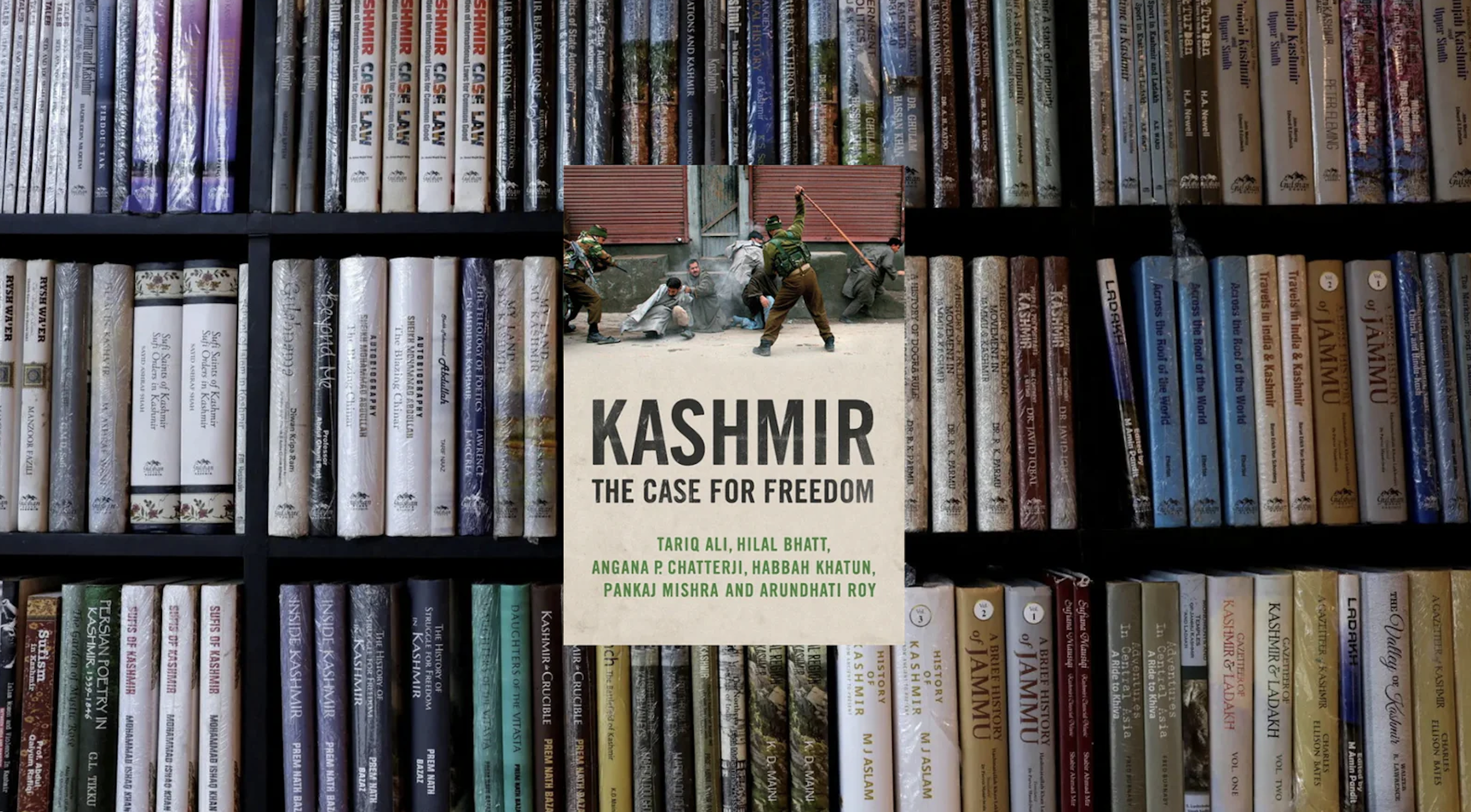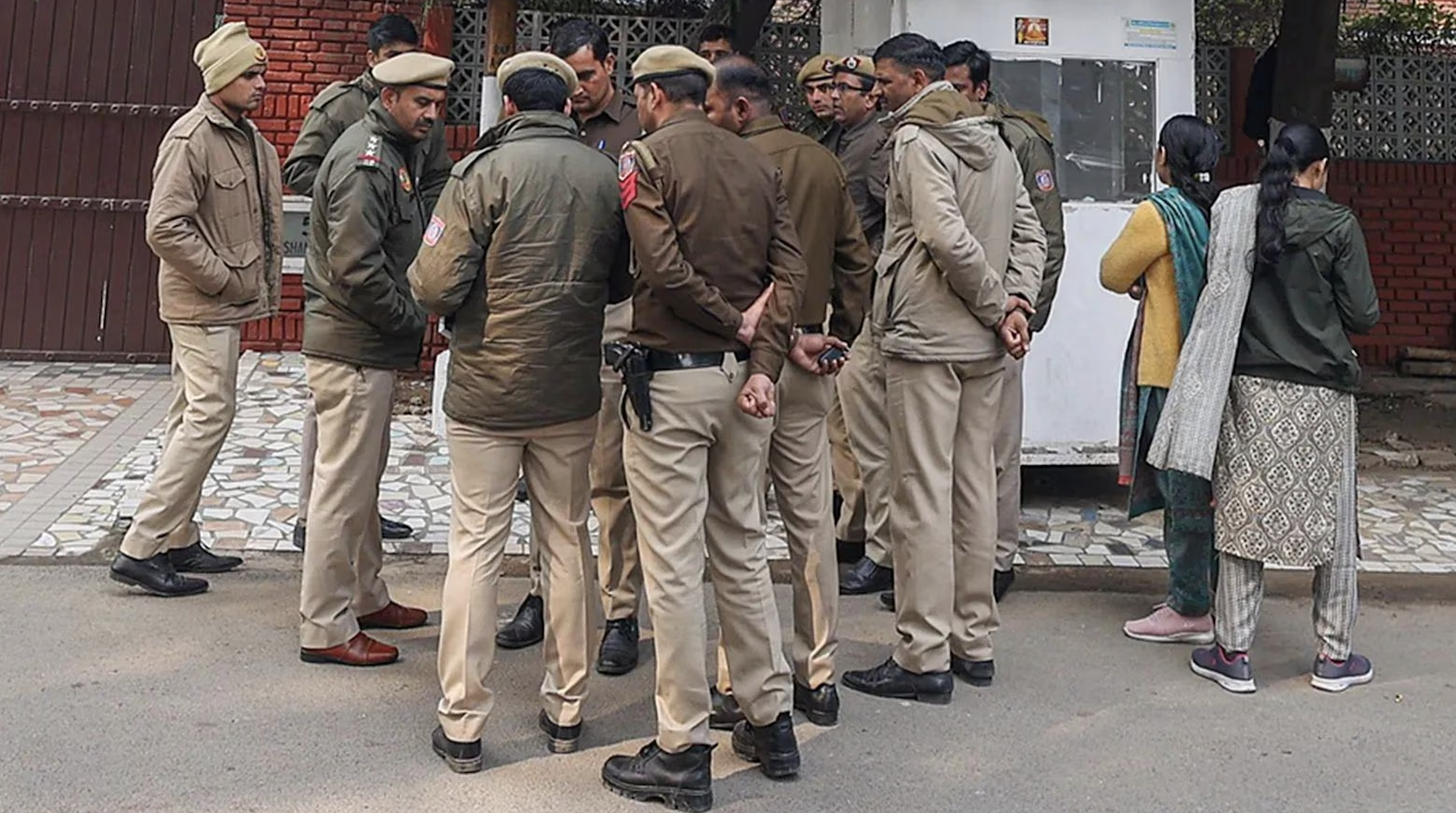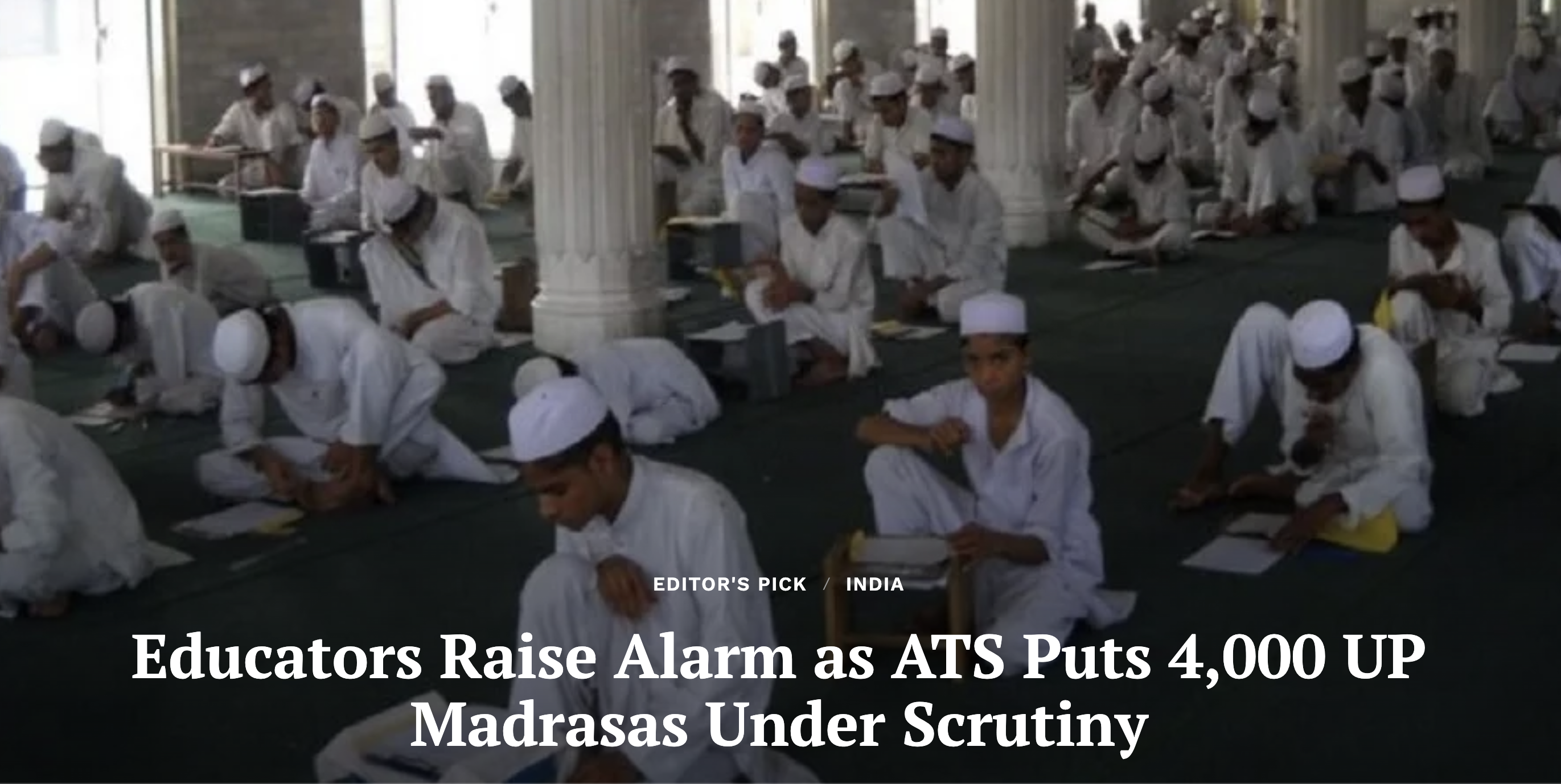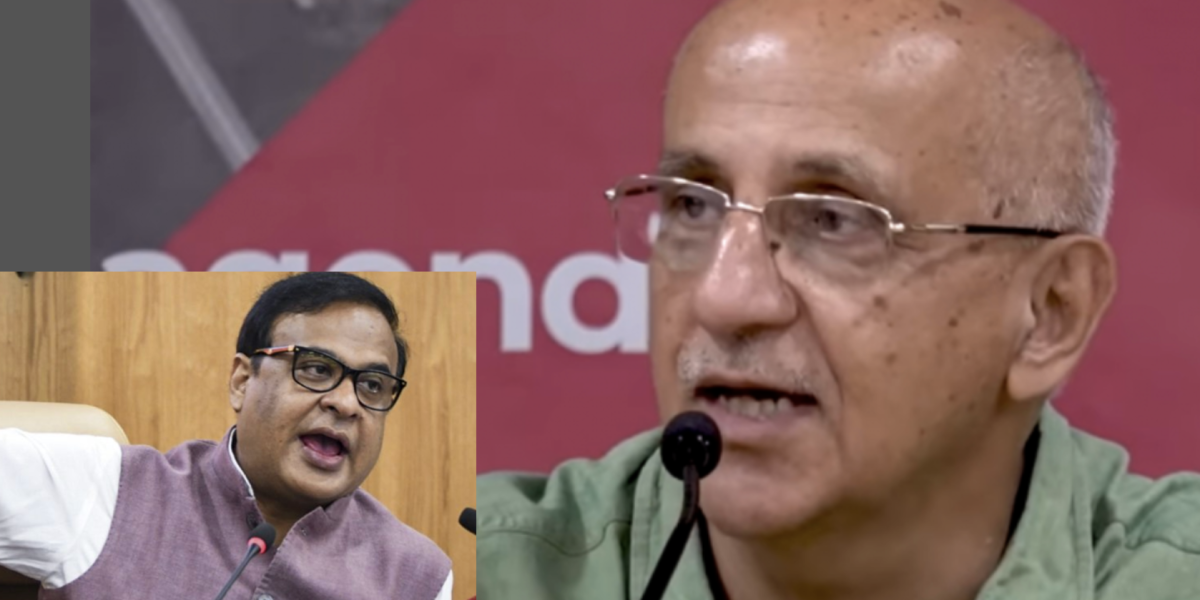
Assault on Refusal
Exactly six years after India’s advance of neo-colonial settlerism in Kashmir, on August 5, 2025, the Government of Jammu and Kashmir’s Home Department, (under the union territory administration) issued Statutory Order 203 against 25 books. SO203 alleges that the banned 25 “propagate false narrative and secessionism” and jeopardize the “sovereignty and integrity of India”. What are the insinuations against the authors and readers of these texts? Reportedly acting on the command of New Delhi, SO203 decrees the forfeiture of the banned 25 in Jammu and Kashmir, prohibits their publication and circulation, and by extension, the reading of these texts. This proscription of intellectual discourse is foremost an attack on Kashmir’s resistance-subjectivity and refusal. In decreeing censorship, the Indian government has signalled yet again that it fears critique and will not tolerate the free exchange of ideas.
Many among the banned 25 are integral to the body of emancipatory work on Kashmir, including a courageous narration on Kunan Poshpora, together with a profusion of related literature in poetry, fiction, accounts, articles, special issues, memoirs, reports and investigations from writers in Kashmir, its diasporas and allies. Leading among them are works enabled by local knowledge [MOU1] that reflect Kashmir’s storied cultures of intellect, hospitality and resistance to tyranny. Included in the banned 25 is Kashmir: The Case for Freedom by Tariq Ali, Hilal Bhat, Angana P. Chatterji, Pankaj Mishra and Arundhati Roy. Its title, spotlighting the subject of freedom, and the diversity of its writers, predisposes The Case for Freedom to invisibility and hostility from majoritarian advocates in India.
Each dimension of life in India-governed Kashmir is replete with the obsessions and absurdities of militarization. Every street, neighbourhood,public building and private establishment, forest and field, and road and alleyway has been “securitized”… Kashmir is a landscape of internment, where resistance is deemed “insurgent” by state institutions.
– Angana P. Chatterji, ‘The Militarized Zone’, 2011: 95, in Kashmir: The Case for Freedom by Tariq Ali, Hilal Bhat, Angana P. Chatterji, Pankaj Mishra and Arundhati Roy
The banned 25 enter the queue of previously targeted work on Kashmir. Among the publishers of the banned 25, Verso’s response was immediate and resolute. While various media reported on the issues in India and beyond, only a few institutions have spoken out to focus on substantive concerns. Those in Kashmir who might protest the book ban, would do so at grave risk. The Indian state has policed and punished free speech in Kashmir for decades, victimizing activists, academics, writers, civil society leaders and members, teachers, students, human rights defenders, researchers, journalists, politicians and lawyers.
Kashmir is one of the world’s most militarized conflict zones. A Muslim-majority region, many there understand themselves to be under protracted Indian occupation. Kashmir is a monument to impunity laws, enforced disappearances, gendered and sexualized violence, displacement, torture, extrajudicial executions, as well as the burial of civilians in unknown, unmarked and mass graves. Adjacently, issues pertaining to Hindu Pandits of Kashmir are weaponized to divaricate Muslim and Pandit communities.
The rise of [MOU2] political majoritarianism in India escalated following the Emergency of 1975-77, the Gujarat pogrom of 2002 and after, culminating in the election of the Narendra Modi-led Hindu nationalist government in 2014 and its re-election in 2019 and 2024. Building on this history, the Modi administration commenced theAugust 2019 siege on Kashmir’s remnant autonomy followed by demographic manipulation and land grab to destabilize Kashmiri entitlements to their land. The state’s determination to wrest absolute control over Kashmir’s political future and economy prompted (and in large part has normalized) internet and media lockdowns, the suppression of freedoms and the disciplining of social institutions and resistance.
The Indian Ideology

The historiography of modern India is largely a pageant of presumed virtues: harmonious territorial unity, religious impartiality, the miraculous survival of electoral norms in the world’s most pop…PaperbackAdd to cartSale price$24.95
Kashmir

by Tariq Ali, Hilal Bhatt, Angana P. Chatterji, Pankaj Mishra and Arundhati Roy
Kashmir is one of the most protracted and bloody occupations in the world—and one of the most ignored. Under an Indian military rule that, at half a million strong, exceeds the total number of US f…PaperbackAdd to cartSale price$19.95
Everybody Loves a Good Drought

Acclaimed worldwide, Everybody Loves a Good Drought is the acknowledged classic on rural poverty in India. Three decades after publication, it remains unsurpassed in the scope and depth of its repo…PaperbackAdd to cartSale price$34.95
Counterintelligence State
Various of the banned 25 excavate aspects of India’s rule in Kashmir. Statutory Order 203 underscores the state’s intent to criminalize such scholarship and render it seditious. SO203 argues that the books merit forfeiture to the government, under Section 98 of the Bharatiya Nagarik Suraksha Sanhita, 2023, (BNSS).Further, SO203 levies Sections 152, 196 and 197 of the Bharatiya Nyaya Sanhita, 2023, (BNS), against the banned 25.
Note: SO203, last para, refers to Section 98 of BNS, however, the order likely intended to refer to Section 98 of BNSS which pertains to the “power to declare certain publications forfeited and to issue search-warrants for [the] same”.
Recently, the Modi administration claimed to “decolonize” criminal laws imposed during British rule in what is India today[MOU3] , through recasting: (1) the Code of Criminal Procedure, 1973, (CrPC), into the Bharatiya Nagarik Suraksha Sanhita, 2023, (BNSS); and (2) the Indian Penal Code, 1860, (IPC), into the Bharatiya Nyaya Sanhita, 2023, (BNS). In actuality, the BNSS and BNS concentrate on majoritarian directives that distend the power and apparatus of the counterintelligence state.
Under the four BNSS and BNS provisos invoked by SO203, the state government may use:
- BNSS 98 to declare texts to be “forfeited”, permitting police officers to seize texts “wherever found in India” and seek authorization from a magistrate to search for the texts in “any premises” where the text “may reasonably suspected to be”.
- BNS 152 to declare those found to have endangered the “sovereignty, unity and integrity of India” via written or other visible representations… be punished with life imprisonment, or imprisonment up to seven years and a fine.
- BNS 196 to punish with a three-year imprisonment, a fine, or both those found to be spreading “enmity between different groups” based on religion, race, language and so forth.
- BNS 197 to punish those found to be making statements deemed “prejudicial to national integration” with a three-year imprisonment or a fine, or both.
Statutory Order 203’s “forfeiture” of the banned 25 warns Kashmiris against free speech and seeking acknowledgement and justice for the crimes of history detailed in the books now banned. It places an oppressed people on notice, compelling self-surveillance. Exercising provisions of BNSS and BNS, SO203 asserts that written works, as exemplified by the banned 25, use inflammatory accounts about Indian rule in Jammu and Kashmir to precipitate separatism, “inciting violence against [the] Indian state”. The order contends that the banned 25 falsify facts and claims that the books promote malcontent among youth and elevate “alienation”, “vilification of security forces” and “religious radicalization”. In response, the locally-elected Kashmir Government set itself apart from the ban.
Infantilizing Kashmiri youth and redacting their experiences and agency[MOU4] , the evidentiary basis of the Indian government’s claims appears to rest solely on its animus. The sanction against scholarship that is disobedient of the government’s agenda seeks to officially erase a corpus that is witness to state terror in Kashmir. Its symbolic and material impact can be extensive. Blockading bookstores affects small businesses struggling to survive in an already devastated local economy. The ban restimulates psychological operations as a means to collapse intellectual infrastructure, terrify and isolate Kashmiris and silence their pain.
Targeting Research
The racialization of Kashmiri Muslims as “enemy/Other” by Hindu nationalists is used to provoke unremitting official and majoritarian hostility to civil society dissent. At the same time, the juridical reconditioning of “unlawful activities” contravenes freedom of speech and expression, the right to peaceable assembly and the right to constitute associations or unions. Disinformation on Kashmir is easily manoeuvred and social-mediatized by politicians, state institutions and a massive non-state cadre. The recent ban is not the first censoring or penalizing of the written word in/on Kashmir. In 2023, two universities in Kashmir removed certain works of Agha Shahid Ali and Basharat Peer from the syllabi and writer Arundhati Roy was charged with sedition. Earlier this year, police raided bookstores.
On 18 June, we travelled to Chehal, Bimyar village in Uri. Here 235 graves hold cadavers brought by the police between 2002-2006. On 20 June, we visited the northern district of Kupwara, which borders the Line-of-Control to the north and west. Kupwara houses six army camps, seven functioning interrogation centres, with police stations functioning as additional interrogation cells.
-Angana P. Chatterji, Excerpts from notes, IPTK investigations, June-July 2008
The research and investigation applied in ‘The Militarized Zone’, my essay in Kashmir: The Case for Freedom, has encountered stern opposition by institutions of state. The essay draws on the work of the International Tribunal on Human Rights and Justice in Kashmir (IPTK). IPTK was convened by Parvez Imroz, Angana Chatterji, Gautam Navlakha, Zahir-Ud-Din and Khurram Parvez in April 2008. IPTK determined to uncover, highlight and seek accountability for the regimentation of violences that structure Kashmir’s political conflict. IPTK remained operational until 2012, was enabled by the Jammu Kashmir Coalition of Civil Society and Associated Parents of Disappeared Persons (JKCCS and APDP). The work of JKCCS, IPTK and APDP has been assailed by state institutions. For example, on July 9, 2008, I authored the article, “Disquiet Ghosts: Mass graves in Indian Kashmir”, in the Etala’at English Daily Newspaper published from Srinagar, based on IPTK’s formative investigations into the unknown, unmarked and mass graves of Kashmir. Immediately after, the Inspector General of Police of Srinagar sought to bring charges against me stating that the article had been published “with the intention to cause fear/alarm to a particular section of public and to induce them to commit an offence against the state”. The notice stated that I had been “abetted” by IPTK co-conveners; the distinguished lawyer, Parvez Imroz, and Zahir-Ud-Din, then editor of Etala’at.
During our research, Imroz and I were taken to an interrogation centre. Imroz’s home was attacked with a hand grenade. Later, my partner was deported from India. Khurram Parvez was targeted for his human rights work and advocacy and eventually incarcerated for 76 days in 2016. Between August 2018 and November 2022, Gautam Navlakha was placed under arrest for his work relating to the Elgar Parishad/Bhima Koregaoncase in India. In October 2019, the state’s human rights commission, which had corroborated IPTK’s findings on the unknown and mass graves, was disestablished. Also in October, prior to testifying to the US Congress at its hearing on Kashmir, I received a high-level warning to reconsider. Following repeated raids on JKCCS offices over an extended period of time, Khurram Parvez was taken into the custody of the state again on November 22, 2021 and remains incarcerated. His confinement has effectuated an embargo on human rights work in Kashmir.
Uprising in Pakistan

by Tariq Ali
The story of what happened in 1968 in Pakistan is often forgotten, but is yet another proof that the revolutionary moment was global. In that year, following a long period of tumult, a radical coal…PaperbackAdd to cartSale price$19.95
Bland Fanatics

Decades of violence and chaos have generated a political and intellectual hysteria—ranging from imperial atavism to paranoia about invading or hectically breeding Muslim hordes—that has affected ev…Paperback
We are sorry this title is currently unavailable for purchase in your selected territory. Please check back or contact us for more information.
Capitalism

In Capitalism: A Ghost Story, best-selling writer Arundhati Roy examines the dark side of Indian democracy – a nation of 1.2 billion, where the country’ s 100 richest people own assets worth one qu…Paperback
We are sorry this title is currently unavailable for purchase in your selected territory. Please check back or contact us for more information.
Subjects of Resistance
As the current government in New Delhi weakens through political, social and economic failures, is the book ban in Kashmir an attempt to divert public scrutiny? Does it portend further injunctions? The decomposition of Kashmir has been exploited by the Modi-led government to enforce states of emergency in India. In doing so, the government has systematically mainstreamed macabre measures conditioned for Kashmir across India. This is typified by the construction of internment camps in Assam to hold Bangla Muslim citizens who are rendered presumptively stateless, the imposition of “undeclared” curfews in Uttar Pradesh and the incarceration of the public intellectual Umar Khalid in Delhi. Will the state now levy a book ban in India, inexorably encompassing a staggering range of subject matter?
What is New Delhi’s plan for the next stage of Kashmir’s neutralization? The Modi-led government is increasingly imbricated with mobs, militias and political violence that attack pluralism and individual and collective freedoms. The book ban alerts us to the state’s strategy to thwart intellectual critique and free speech to lubricate public amnesia. This allows statist propaganda to predominate and escalate jingoism across social fault lines, appropriate greater power and authorize impunity to state forces.
Authoritarian regimes ban books to assert and mobilize power and govern through crackdown, fear and violence. The Modi-led government holds analyses of Kashmir’s political conflict as seditious and anti-national in order to privilege nationalist ambition and Islamomisia (hatred of Islam and Muslims). Even as the contemporary era is proof that banning books repeatedly invigorates and strengthens scholarship of refusal, ghettoizing and demonizing writers also marginalize[MOU5] and sideline local knowledge and critical thought.
The book ban in Kashmir casts a long shadow. It is the state’s combat to disappear counter-memory, revision history and culture and interdict the inventory of state crimes from shaping the people’s resistance. Writers in Kashmir fear further intimidation and raids and believe they may be forced to keep silent, retreat underground, or imperil themselves if they persist. In India, the silence on Kashmir’s negation is often loud. Writers on Kashmir in the diaspora [MOU6] have been threatened into forms of exile and a profound loneliness that render people out-of-place.
The present censorship aggresses the banned 25, expanding the prolonged assault on subjects and scholarship on and in Kashmir that dissent India’s militarized governance. Already books additional to the banned 25 have been snatched from bookstores in Kashmir. In 2010, when Barack Obama was visiting Delhi, it was reported that the Indian government had deemed the “K-word” (K: read Kashmir) off limits. “K-words” are perhaps keywords of liberatory possibility, a heartbeat of Kashmir, symbolic of just transformations and hope.
This story was originally published in versobooks.com.






